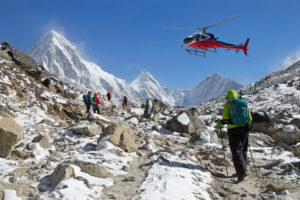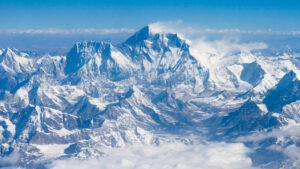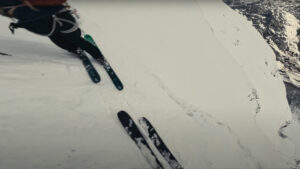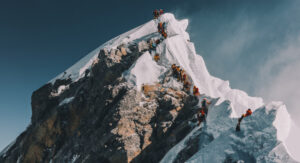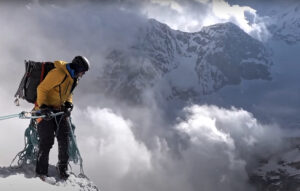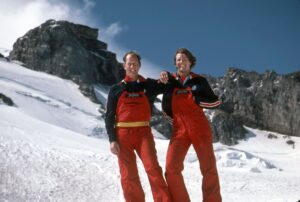How can you possibly prepare for high winds, deep cold and extreme altitude on K2 in winter? Definitely not at 25ºC on the sunny Mediterranean coast.
The surge in COVID-19 cases has led to renewed restrictions across Europe, including Spain, and Carlos Garranzo has not managed to get an exemption from the government to leave Murcia, his home region, to train for his upcoming Winter K2 expedition. Garranzo lives in Cartagena, on the east coast. At this time of year, you can still swim in the Mediterranean. The highest place in his region barely reaches 1,500m, and midday temperatures touched 25 degrees this past weekend.
“Exceptions are made only made for athletes in official competitions,” Garranzo told ExplorersWeb. He had previously planned to acclimatize in the Alps, but this is now a double no-go, since European mountains are also closed.
Official or not, there is actually a worldwide competition to be the first to climb K2 in winter, and Garranzo is part of the growing team put up by Seven Summit Treks’ Dawa Sherpa. Dawa confirmed today that a whopping 45 climbers, including both Sherpas and non-Nepalis, have already signed on.

Carlos Garranzo at Broad Peak Base Camp.
Meanwhile, the 60-year-old, recently retired firefighter is training by running up and down hills and endurance cycling. He hopes to acclimatize to cold and altitude on the trek to Base Camp. “Luckily, I usually acclimatize pretty fast,” Garranzo said.
He and expedition co-leader Sergi Mingote have booked their flights to Islamabad for December 18. Garranzo and Mingote are regular climbing partners. “Let’s hope that neither Spain nor Pakistan close their borders before then,” said Garranzo. “I can’t wait to be back to the Karakorum.”
He is realistic about the difficulties of Winter K2 and admits that he will go as far as he can without supplementary O2, but will use it if necessary. “I know our summit options are very scarce,” he said, “but if I believed it was completely undoable, I wouldn’t go.”
Even if they don’t summit, Garranzo believes that the expedition would break a barrier if they could reach at least 8,000m, which would be the highest yet achieved. Denis Urubko, who made it to 7,800m back in 2003, holds the current record.

